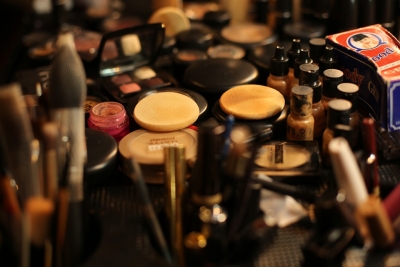TN cracks down on unlicensed homemade cosmetics marketed through social media
By IANS | Updated: June 26, 2025 09:58 IST2025-06-26T09:52:15+5:302025-06-26T09:58:44+5:30
Chennai, June 26 Amid rising concerns over the quality and safety of homemade cosmetic products marketed extensively through ...

TN cracks down on unlicensed homemade cosmetics marketed through social media
Chennai, June 26 Amid rising concerns over the quality and safety of homemade cosmetic products marketed extensively through social media, the Tamil Nadu Drug Control Department has launched a statewide crackdown on unlicensed manufacturers.
Acting on public complaints, the department has identified 66 units suspected of violating the Drugs and Cosmetics Act, 1940.
A senior official from the department confirmed that most of these units promote their products on social media platforms without obtaining the required manufacturing licences.
“We have begun block-level inspections based on instructions from the Director of Drugs Control, P.U. Karthigeyan. If violations are found, we will initiate legal action under Section 18(c) of the Act,” the official said.
The crackdown comes in response to increasing reports of substandard products flooding the market. A total of 38 types of personal care and cosmetic items fall under regulatory purview, including skin and tooth powders, toothpaste, creams, shampoos, hair oils, nail polish, kajal, henna, sindoor, cold wax, face packs, and toilet soaps.
Currently, Tamil Nadu has 340 licensed cosmetic manufacturers, with 37 operating in the Coimbatore region. The department has intensified inspections of these units, especially those actively promoting products on social media.
Two units in Coimbatore were already found violating promotional norms. Officials noted that while some units flout the law knowingly, others lack awareness of the licensing process.
“We advise such small-scale manufacturers to apply for a licence instead of facing legal action,” an official added.
To manufacture cosmetic products legally for commercial purposes, entrepreneurs must apply for a COS-8 licence through an offline process to the Director of Drug Control in Chennai.
The application fee is Rs 10,000 for up to 10 products, and the licence is valid for a lifetime, subject to a renewal fee of Rs 10,000 every five years. Approval is based on a self-declaration of compliance with Good Manufacturing Practices (GMP), followed by a field inspection by drug control officials.
Cosmetic products must also meet standards prescribed by the Bureau of Indian Standards (BIS) and comply with the 7th Schedule of the Cosmetics Rules, 2020, which outlines guidelines for manufacturing premises, equipment, and hygiene protocols.
Following the recent inspections, major e-commerce platforms have begun demanding licences from sellers. In response, many small-scale manufacturers have removed contact details to evade scrutiny. However, officials stress that genuine businesses can operate legally by following the proper procedures and obtaining the necessary clearances.
Disclaimer: This post has been auto-published from an agency feed without any modifications to the text and has not been reviewed by an editor
Open in app